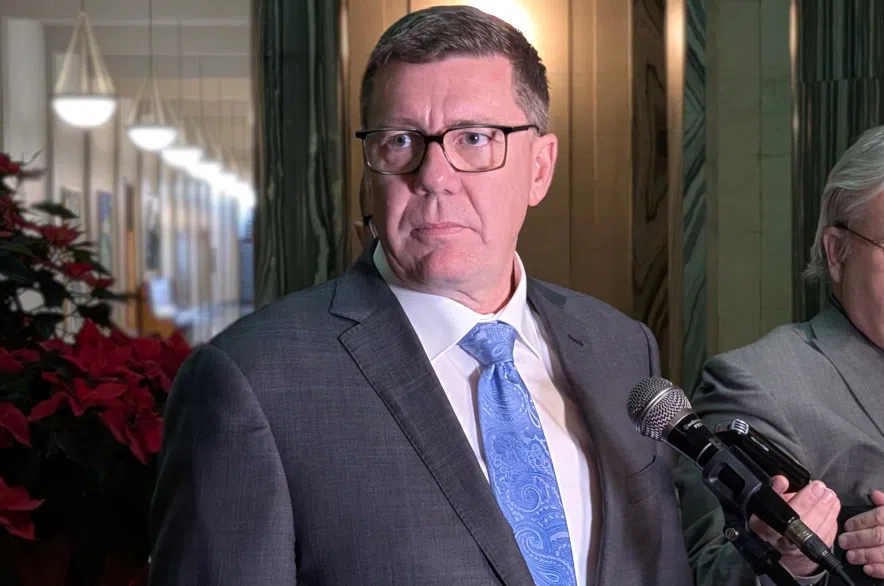While other leaders in Canada call for the Temporary Foreign Workers program to be scrapped, Saskatchewan’s premier is staying above the fray.
Last week, federal Conservative leader Pierre Polievre called for the program to be scrapped, saying it depresses wages and is contributing to higher unemployment for young people. Then B.C. Premier David Eby chimed in, also calling for the program to end, saying it’s being abused.
When asked about it, Premier Scott Moe didn’t share his opinion on whether the program should be scrapped, instead talking about the importance of the economy’s role in immigration.
Read more:
- Mayor to present motion asking for review of public event bylaw after Sean Feucht concert
- Regina ‘Survivor’ contestant Jake Latimer calls time on series the ‘experience of a lifetime’
- Dangerous drugs found in Saskatoon, Sask. health ministry warns
He said he wants people to move to and settle down in Saskatchewan.
“We would always, and have always encouraged immigration numbers to be focused on economic migration,” Moe said.
“It’s good, not only for the broader Canadian economy, it’s good for communities bringing in the needed qualifications and certifications, people with the skills to, in our case, continue building communities and opportunities in our province.”
He said there’s a broader conversation around immigration metrics in this country, pointing to the Saskatchewan Immigrant Nominee Program (SINP), which had its numbers cut this year, as well as student visas and asylum seekers.
Moe said there is a broader opportunity at the federal and provincial levels to participate in this conversation.
Last week, Prime Minister Mark Carney ruled out getting rid of the program, saying it’s part of a broader immigration review.
Polling
A new online poll shows close to half of respondents support the elimination of the Temporary Foreign Workers program.
The poll was done by Abacus Data, and was conducted online and can’t be assigned a margin of error.
It found younger people were more supportive, with support topping 50 per cent of 30- to 44-year-old respondents and hitting 48 per cent of those 18 to 29.
And the polling found support for ending the program was higher in the prairie provinces.
— With files from CKOM’s Mia Holowaychuk and The Canadian Press











